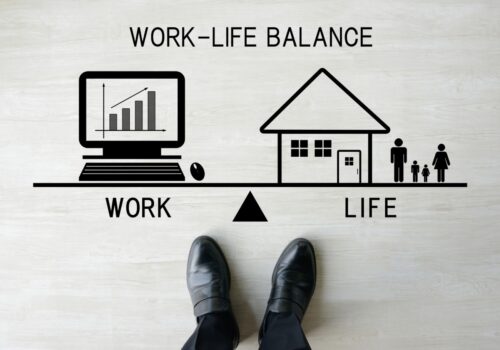The success of any organization depends on its ability to attract, retain, and motivate its best-performing employees. However, an employee can only experience a sense of accomplishment when a senior takes notice, which is why recognition and acknowledgement are vital to the growth and development of any business. Recognition in the workplace is not merely a nice-to-have; it’s a fundamental element of a thriving organization. It is a morale booster for employees motivated to go that extra mile, elevating performance and increasing retention. Here are some of the main reasons why recognition is essential in the workplace and how it can contribute to employee engagement and productivity.
What is Employee Recognition?
Employee recognition is literally what it says: an open acknowledgement and appreciation for employee performance and their contributions to the organization. It can be for achievements, desired behavior, performing beyond expectations, or achieving milestones. Recognition can take many forms, including verbal praise, written thank-you notes, awards, bonuses, promotions, and more. Employee recognition reinforces positive employee behavior and unlocks their full potential to be more productive in the company out of a desire to do so. It’s all about making employees feel valued, appreciated, and motivated to continue giving their best.
Why is Employee Recognition Important?
When it comes to feedback, recognition can be a powerful tool to motivate employees and make them feel valued. According to research, 84% of HR leaders believe that employee recognition programs increase employee engagement. Thus, if organizational leaders are genuinely focused on business success, employee recognition must become the No. 1 priority. Here are the most proven ways how employee recognition impacts the workplace.
It Increases the Retention of Top Performers
Employee satisfaction is integral to employee retention. A good employee recognition program that implements employee ideas makes them feel appreciated by the company. In such a situation, employees don’t feel the need to change employment and instead become more focused and dedicated.
It Reinforces Values
When managers and leaders recognize behaviors and actions more frequently, it proves to employees what is valued by the organization. This encourages employees to adopt the same type of behavior aligned with company values, thus inspiring and motivating others to do the same. It sets a more positive example.
It is a Morale Booster
Recognition in the workplace has a profound impact on employee morale. When employees feel their hard work is noticed and appreciated, they are more likely to be engaged, satisfied, and enthusiastic about their jobs. A simple “thank you” or a public acknowledgement of their accomplishments can go a long way in lifting spirits and boosting morale.
Fosters a Positive Work Environment
Recognition promotes a positive work environment by creating a culture of appreciation and support. When employees see their colleagues being recognized for their achievements, it sets a positive example and encourages them to strive for excellence. A workplace where recognition is prevalent tends to be more collaborative and motivating, making employees eager to contribute and collaborate.
Reduces Absenteeism
Unhappy employees usually try to avoid work, but recognized employees love their workplace. By rewarding employees and acknowledging their value in the organization, managers reduce the tendency toward absenteeism. Punctuality in attendance helps an organization grow faster, meet deadlines, and get tasks finished on time.
Increased Productivity
Motivated employees are more productive. When employees know that their hard work will be acknowledged and rewarded, they are naturally driven to perform at their best. This higher level of productivity benefits the organization by improving overall efficiency and output.
Encourages Learning and Improvement
Recognition encourages employees to continue learning and improving their skills. Well-performing employees who are recognized are more likely to seek out opportunities for skill enhancement and professional advancement, which ultimately benefits the organization.
Encourages Employee Loyalty
Organizations that prioritize recognition build a sense of loyalty among their workforce. Loyal employees are more likely to work towards a positive company culture and promote their company. They are also more likely to help the company attract talent through referrals.
What Employee Recognition Means for the Business
Employee recognition involves more than keeping employees motivated and happy. It also gives the organization an edge over others by way of a reputation for being a fantastic place to work. In a digital age, word quickly travels through social media, social networks, and professional platforms. Employees share their experiences of their working life and workplace, and eventually, positive advocacy improves the credibility and standards of an organization. Here are some more ways in which employee recognition impacts a business
- Improved customer satisfaction
- Better customer services
- Repeat business
- Positive reviews
- Competitive edge over others
- A good reputation
- Adapts faster to new trends
- Superior products
- Excellent services
- Reduces administrative program costs.
- Quality employees over Quantity of employees

Effective Ways to Recognize Employees
Several companies, even those with solid work cultures, may need help in practicing employee recognition. Here are five helpful ways to foster meaningful employee recognition
Be Specific
Being specific about what an employee is being recognized for helps the employee relate it more to their behaviour. This also encourages a continuity of performance. Moreover, tailored recognition delivered to employees in a language they would prefer to hear delivers that much-needed personal touch.
Use Various Expressive Mediums of Recognition
There are several meaningful ways to recognize and express appreciation for a job well done. These can go a long way in making employees feel valued, such as:
- Handwritten notes
- Verbal recognition
- Awards and certificates
- Emails
Rewards
Rewarding an employee is a powerful form of recognition which will undoubtedly keep them committed to good performance. These could be bonuses and incentives for exceeding targets or promotions based on merit. Such rewards play a productive role in recognizing an employee’s hard work and commitment.
Public Recognition
Recognizing employees in a public forum, such as a company-wide meeting or through internal communications, can increase the impact of the recognition. Other forms of public credit, both internally and externally, can include:
- Employee of the Month Programs
- Office board posting of Employee performance
- Posting on company social media
- Share news about company performance and mention employee contributions
Conclusion
Recognition in the workplace is not just a feel-good practice; it has several benefits for employee engagement, motivation, and productivity. However, along with recognition, employees need to feel appreciated, and managers and seniors do their best. While recognition is helpful but temporary, appreciation is permanent, but both go hand in hand in helping a company improve its work culture, organizational success, and employee well-being.
















